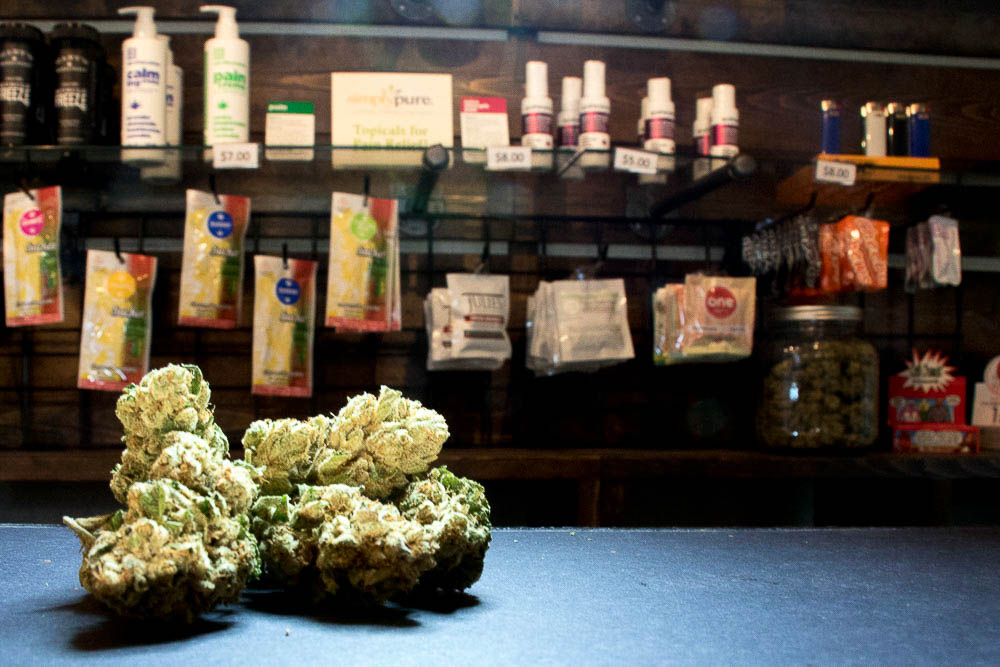
Colorado became the first state in the nation to legalize recreational cannabis back in 2012. Eight years later, during a historic pandemic that has confined much of the public to their homes, Colorado is on schedule to be the last state to allow for widespread legal marijuana delivery.
This comes even as we rely on mail order or delivery for prescription medications, groceries or other essentials.
Part of the state’s marijuana delivery into law, which Gov. Polis signed in 2019, went into effect at the start of the year. It allows for medical marijuana delivery, but only if individual municipalities opt into the law.
Almost halfway through 2020, the cities of Boulder and Superior are the only two on board.
The state’s only two marijuana businesses permitted to deliver to registered medical marijuana patients both happen to be in Boulder: a location of the state-wide chain Native Roots, and Helping Hands Herbals. The second shop is not able to take delivery orders yet. A third has been approved, according to the state Marijuana Enforcement Division.
Retail marijuana delivery is coming in 2021 with the same caveat: individual cities must opt-in.
Pamela Jacobson, who lives in Aurora, doesn’t have much faith in that happening in her neck of the woods. “They’re not doing anything,” she said, adding that few shops in Aurora will even honor her medical marijuana card. Jacobson suffers from a rare form of cancer and relies on cannabis to ease the harsh side effects of treatment. Lately, she’s crossed city limits over to Denver to buy what she needs.
“It’s just so far for us to have to go to get medicine,” she said. “And I’ve had no choice but to do that because there’s no other option right now.”
Since Jacobson has a compromised immune system, she stays indoors as much as she can.
“To have it delivered is kind of crucial to us right now to keep us from getting sick,” she said. “When we go to dispensaries, we don’t know who has been there, who’s asymptomatic or who’s been there showing signs, or what’s lingering in the air when we go there.”
Jacobson is one of the people following the law. Many are not. A recent report by Denver auditor Tim O’Brien found at least three businesses offered marijuana delivery to Denver residents. He said it wasn’t very hard.
“We simply Googled ‘retail marijuana delivery’ and found three shops that delivered it,” he said. “We actually contacted a couple of them to make sure that these weren’t some kind of fictitious organization that was out to scam people.”
Not only did they check out, but O’Brien said they had online reviews from customers stretching back years and that the city had never even noticed or attempted to shut them down. Marijuana delivery is explicitly banned in Denver, so opting in to the state delivery law requires action by the city council to overturn the local ban.
The city is going a step further and creating its own licensing system, a process that is projected to take the rest of the year, according to Denver’s department of excise and licensing.
“We need to do what’s right for Denver,” said Ashley Kilroy, executive director of the department. “And I’m sure Boulder did what was right for Boulder.”
Kilroy’s department has convened a 24-member workgroup to develop recommendations on a package of marijuana licensing, which includes delivery, but also hospitality and research. The aim is to recommend rules to the mayor and city council by early 2021 at the latest, just in time for legal retail delivery to take effect statewide.
Even though the pandemic has upended public events and shifted schools and workplaces to remote environments, Kilroy said the impact on their process has been minimal.
That is to say, they haven’t been slowed down. But they aren’t looking to pick up the pace either.
“We had always planned on moving forward with this going through our regular process, just like we do everything,” she said. “Going through it thoughtfully and comprehensively with a diverse workgroup to give us feedback.”
The process has mirrored the rulemaking for Denver’s social consumption licensing, a pilot program approved by voters in 2016 that allows for marijuana consumption in certain businesses open to the public. To date, there is only one license holder and the program has been criticized by some city council members as ineffective.
Even the state’s timeline for delivery remains the same as it did pre-pandemic, unusual among legal states.
Oregon approved emergency rules to allow for marijuana delivery within 150 feet of a dispensary. Pennsylvania, which only has legal medical marijuana, went further, allowing home delivery under temporarily loosened regulations. A slew of other legal states — like California — already allowed delivery in some capacity.
Eaze, one of California’s biggest marijuana delivery platforms, saw demand double between March 13 and April 13. That’s according to internal data, which doesn’t even take into account April 20, the Black Friday of legal weed.
“Oh my god, it’s been busy,” said Rosalinda Berrera, an Eaze delivery driver for a dispensary called Hometown Heart in San Francisco. “The weekend before 4/20, it boomed. I’m saying it really boomed. I did about 30 orders within a six-hour period.”
A consumer in California can pull up Eaze or a handful of other apps and order cannabis from a local dispensary much like one would order a meal for delivery. Berrera said it’s in line with how people live right now.
“I walk up and at the same time there’s Whole Foods or Amazon delivering, so everyone seems to be having services delivered to them as well,” she said. “Not only cannabis but pizza and Whole Foods.”
David Mack, Eaze’s senior vice president of public affairs, said the company put a lot of advocacy behind Colorado’s delivery law in 2019 and other previous failed efforts. But there’s a key difference between Colorado and California.
“So in California, the state has decided that localities have the ability to cite and permit brick and mortar retailers within their communities,” something the state has in common with Colorado, he said. “But they said that localities do not have the ability to prohibit deliveries into their community from licensed retailers.”
While regulators may hold local control sacrosanct, Mack said, black market dealers care little about the regulations between one city and the next.
“You can get it delivered. It’s not a question of if delivery exists in Colorado, it’s ‘does easy legal delivery exist?’” he said. “The longer we kind of like bury our heads in the sand, and say ‘well, I don’t know this or that,’ that’s great. You know, the illicit market loves it. They’ll snap up all of that demand and all those tax dollars go away.”









